If you’ve been watching Cobra Kai, you probably know what the title of this substack post means. Season 1 and 2 were, in my humble opinion, pretty good. I was so happy to see Johnny Lawerence’s side of the story told. Life is always about seeing both sides of the coin. In the original The Karate Kid, Johnny Lawrence, portrayed by William Zabka, was the quintessential 1984 bully, serving as the antagonist to Ralph Macchio’s underdog protagonist, Daniel LaRusso. It was the ultimate underdog story—a tale of a scrappy kid from New Jersey with a single parent mother. He had no male figure in his life and no formal martial arts training, yet through his chance meeting with Pat Morita’s Mr. Miyagi, Daniel was able to rise up against a privileged, expertly trained opponent and become the All Valley Karate Champion. Nothing screams 1984 more than this.
We humans love underdog stories because they speak to our innate desire to see the odds defied and justice prevail. They inspire hope, reminding us that grit, determination, and heart can triumph over adversity. Whether it's on a tatami mat or in the challenges of everyday life, the underdog’s journey resonates because it mirrors our own struggles to overcome life's obstacles and prove ourselves.
For me, season 1 and 2 of Cobra Kai were so captivating because they peeled back the layers of Johnny Lawrence in ways the original Karate Kid movies never could.
In the original Karate Kid, Johnny was a one-dimensional villain—a rich, arrogant bully. There might just be no bully in the history of cinema more iconic Johnny Lawrence back in 1984. But the Cobra Kai series showed us the man behind the bravado. We saw his struggles: living in a broken home as a child to becoming a man with lost dreams— a life that hadn’t gone as planned. Johnny wasn’t just the bad guy; he was flawed, human, and surprisingly relatable.
This deeper exploration of Johnny’s character in the first seasons of Cobra Kai gave the audience something new—an opportunity to root for Johnny as he tried to rebuild his life, reconnect with his son, and find redemption, even if at times he still was a dick. It added complexity and nuance to the story, elevating it beyond the nostalgia and making us see that even those we once saw as villains have their own battles to fight.
Those first two seasons of Cobra Kai always walked a fine line between earnest drama and campy, cheesy 1980’s nostalgia. Somewhere around season 3 however, the writers flipped the script—or maybe crane-kicked it right in the face. It became so awfully bad, yet for us nostalgic 1980’s martial arts film fans, it’s right up our alley. Way too much cheese, way too less decent acting or any resemblance of a story that resonates with an audience. The entire last 4 seasons were about characters fighting against each other, then becoming friends, then having 10 minute long WWE style battle royals to finish each season. Rinse and repeat. I can’t help but feel that all this cheese is completely intentional—a loving tribute to the campy 1980s martial arts movies many of us grew up watching (and sometimes cringing at).
Much like season 5, which was probably the worst season up until that point (6 has taken that mantle), season 6 doubles down on the hallmarks of the 1980s: over-the-top melodrama, dialogue so stiff it feels like it’s been lifted straight out of a VHS bargain bin movie, and a soundtrack packed with power ballads and synth-heavy jams. It’s like the writers sat down and said, “What if The Karate Kid met Miami Vice, but worse—and better?”
As as an example, season 6 episode 9 opens in Bangkok, Thailand, with music that is a straight rip off from Jean-Claude Van Damme’s Kickboxer from 1989.
Every heavily sped up fight scene in Cobra Kai, where teenagers fight forever doing moves that are impossible for humans to pull off without wires, ridiculous training montages, and hilariously overwrought stare-offs and one liners, reminds me of those late-night reruns of action flicks where the acting was wooden, the Karate was very questionable, and the villains were cartoonishly evil. And yet, it worked then, and it still works now—because nostalgia is a powerful drug.
Karate? No!
Speaking of the Karate in Cobra Kai… it’s bad. I know a thing or two about karate by the way, as I grew up doing it and was a Queensland state champion. Karate was also the original reason why I always wanted to come to Japan. Most of the fight sequences in Cobra Kai actually use very little Karate, instead leaning heavily on Aikido and Judo. Very few of the techniques used to win points in Cobra Kai kumite are actually Karate techniques! And don’t forget, not a single competitor in any Cobra Kai fight scene is actually wearing a mouth piece. I noticed this when there was a hilarious scene of someone having their tooth knocked out—except the tooth was massive and looked like the tooth of a saber-toothed predator.
The Karate in Cobra Kai is bad, not in a “it’s so bad it’s good” way—just bad. Ralph Macchio, who reprises his role as Daniel LaRusso, is probably the worst offender. Despite decades of practice (on paper, anyway), his moves are about as convincing as a fourth-grade talent show routine. Even William Zabka, as Johnny Lawrence, is looking a little stiff these days. The stunt doubles used remind me of straight to DVD Steven Seagal movies.
But here’s the thing: that’s part of the charm. The show leans into the idea that Karate isn’t about perfect form but about heart—and drama. Watching these middle-aged men (and their inexplicably skilled teenage proteges) square off in increasingly ridiculous scenarios feels less like watching a competition and more like reliving the absurd joy of movies where “honor” and “dojo pride” were the ultimate stakes.
Why We Keep Watching
Let’s be real: we’re all here for Johnny Lawrence. William Zabka’s portrayal of Johnny is the glue that holds this messy, glorious train wreck together. His redemption arc—equal parts hilarious, heartfelt, and absurd—is the true beating heart of Cobra Kai.
In Season 6, much like the past few seasons, we see Johnny grapple with his past, try to be a better father, and navigate the challenges of his new life with Carmen. He’s flawed, stubborn, and often hilariously inappropriate, but that’s what makes him relatable. What makes him relatable to me? He is clearly stuck in the 1980’s, a time when the world made more sense and was much easier to understand. His journey from bully to underdog hero feels genuine, even amid all the chaos.
The writers might be poking fun at the genre, but Johnny’s story is what keeps the show grounded. We want to see him succeed—not just in karate tournaments, but in life. And maybe, just maybe, we also secretly want to see Daniel LaRusso deliver one last crane kick to someone who really deserves it because let’s not forget, that crane kick is the most famous crane kick in cinema history.
Cobra Kai season 6 feels like the writers decided to lean all the way into the absurdity of their premise—and I respect that. It’s not a show you watch for high-brow drama or Oscar-worthy performances. It’s a show you watch because it reminds you of a simpler time, when good guys and bad guys settled their differences with flying kicks and inspirational speeches about honor.
Is it cheesy? Absolutely. Is it good karate? Not even close. But is it entertaining in a way where you can just laugh at how bad the tv show is? You bet your bonsai tree yes!
And until we see how Johnny Lawrence’s story ends, I’ll be here, front and center, relishing every terrible line and implausible fight scene. After all, sometimes the worst things are the most fun.
Strike first, strike hard, no mercy.
Rionne McAvoy is the director of the award-winning documentary The One's Left Behind: The Plight of Single Mothers in Japan, showcasing his dedication to addressing pressing social issues. A committed documentary filmmaker and professional wrestler, he explores critical themes with passion and insight. Additionally, he has a keen interest in post-World War II Japan, particularly the intricate connections between politicians and gangsters during that era. Known in the wrestling ring as Rionne Fujiwara, he brings the same determination and storytelling prowess from his wrestling persona to his filmmaking endeavors.




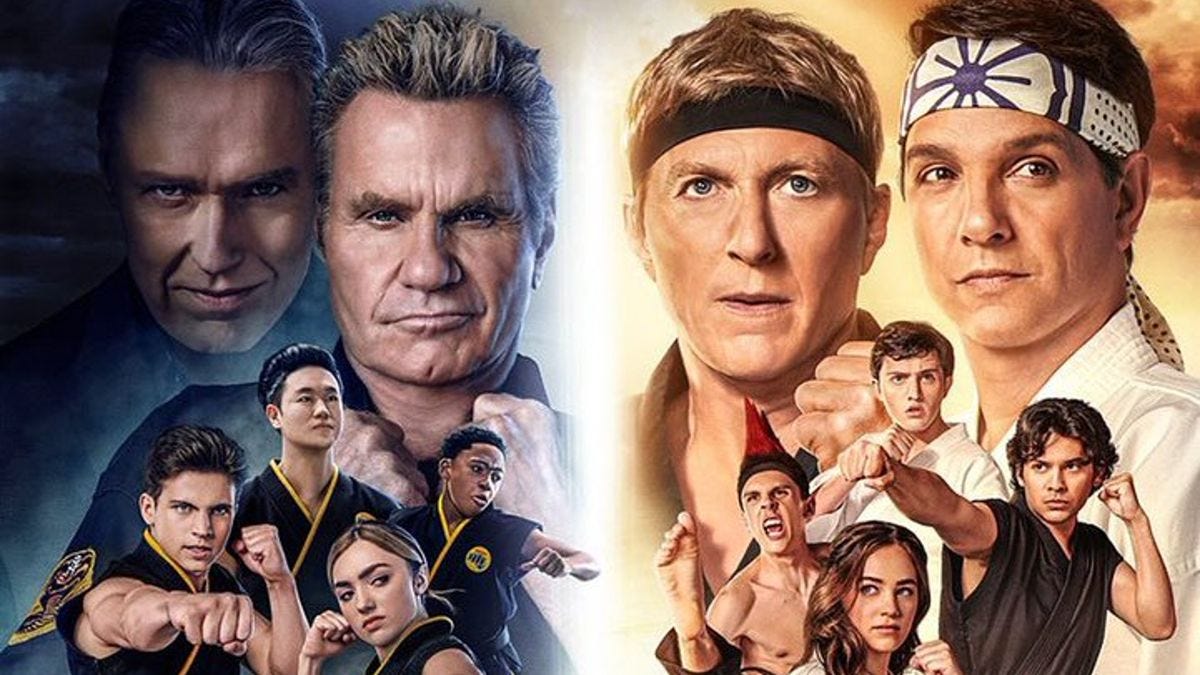
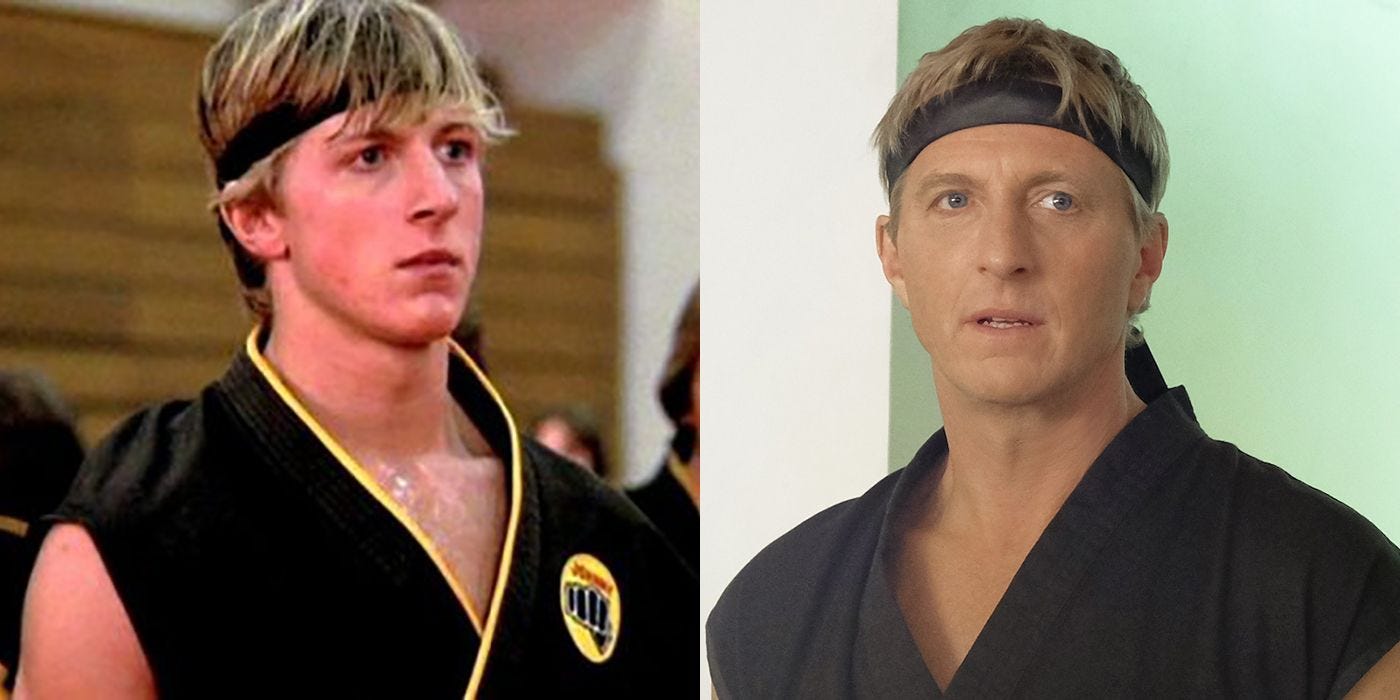
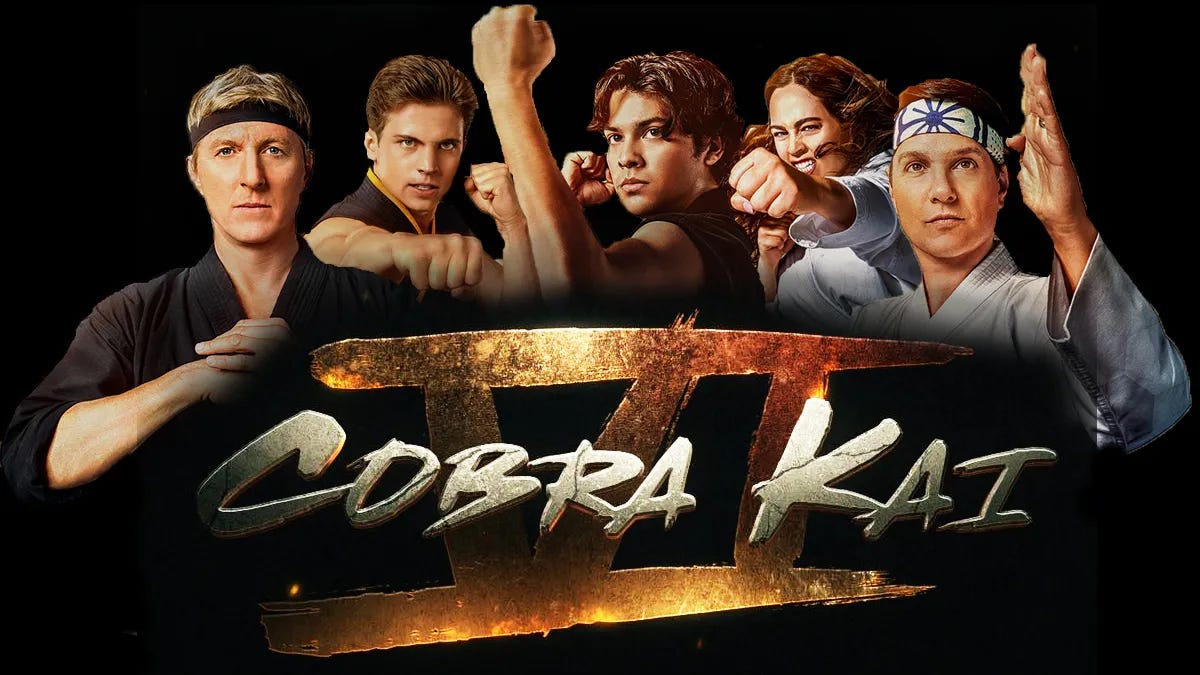
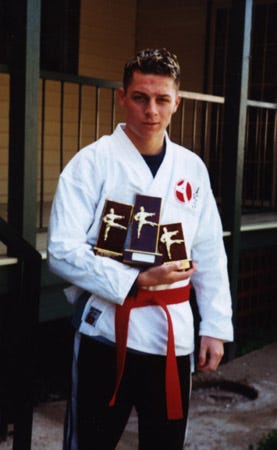
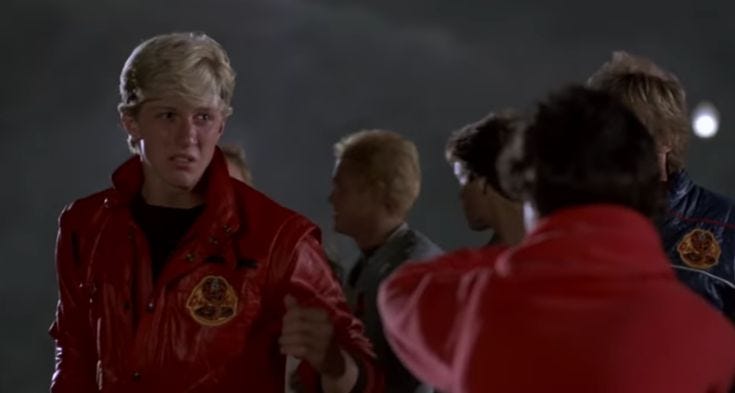
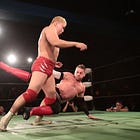
Nailed it.
I watched all of season 1 and half of season 2 and had been wondering if I should return to it. After reading your article I think I'll take a rain check.
Karate currently has an image problem, and with Cobra Kai a new generation gets to formulate a fresh set of prejudices.